Have you ever found yourself navigating the complexities of restrictive covenants? These legal agreements play a crucial role in maintaining the integrity of neighborhoods and businesses, but understanding their enforcement can be a bit tricky. Whether you're a property owner, a tenant, or a business operator, grasping the nuances of these covenants is essential for safeguarding your rights and interests. So, let's dive deeper into what you need to know about enforcing restrictive covenants, and don't miss the opportunity to read more!
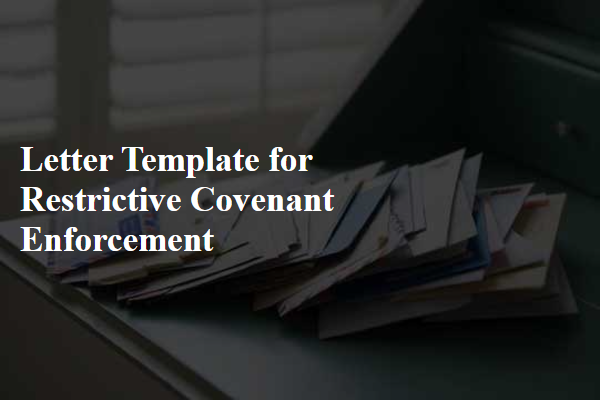
Clear identification of the covenant terms.
Restrictive covenants in real estate agreements serve to protect property values and community standards. Key terms include limitations on property modifications, prohibitions against specific commercial activities, and guidelines for maintaining property aesthetics. For example, a covenant may restrict the construction of fences taller than six feet in residential neighborhoods, ensuring visual harmony. Additionally, rules regarding the use of properties for short-term rentals, such as those seen on platforms like Airbnb, can be clearly stated to prevent disruptions in community living standards. Enforcement of these covenants can involve legal action against non-compliant homeowners, emphasizing the importance of adhering strictly to the established terms to maintain community integrity and property values.
Specific description of the alleged violation.
In the residential community of Maplewood Estates, the alleged violation pertains to the unauthorized construction of a gazebo (a freestanding, roofed structure) within the backyard of 123 Elm Street. This structure, measuring approximately 10 feet by 12 feet, has been erected without prior approval from the Homeowners Association (HOA), violating Section 4.2 of the community's restrictive covenants (a legal agreement outlining property use). Additionally, the gazebo's design and materials (wooden frame with vinyl siding) deviate from the approved aesthetic standards--mandated in the HOA guidelines--further exacerbating the infraction. The construction has not only altered the property's visual character but may also affect surrounding property values and neighborhood harmony, as established in community regulations.
Request for corrective action and timeline.
A restrictive covenant agreement can safeguard property values and maintain neighborhood standards. Violations can emerge, such as unauthorized modifications to home exteriors or unapproved landscaping changes. Owners must act promptly to uphold these agreements, ensuring compliance to prevent potential legal disputes. A corrective action request should clearly outline the specific violations observed, referencing the covenant terms as stipulated in the original agreement. Additionally, a defined timeline for rectification, typically ranging between 30 to 60 days, ensures the owner understands the urgency of compliance. Non-compliance may result in escalation, involving legal professionals or homeowners' association intervention to enforce covenant terms effectively.
Potential legal consequences for non-compliance.
Restrictive covenants are legally-binding agreements that dictate specific actions or restrictions regarding property use or conduct. Non-compliance with these covenants can lead to significant legal consequences, including financial penalties or court orders compelling compliance. In many cases, enforcement actions are initiated by property owners or homeowners' associations seeking to uphold community standards. Legal disputes may result in costly litigation, where parties must present evidence of breach and its impact on property values or community integrity. Courts may impose injunctions, preventing further non-compliance, along with awarding damages to the aggrieved party. Additionally, persistent violations can jeopardize future property transactions, as potential buyers may be deterred by unresolved legal issues or lowered property values. Adherence to these agreements is crucial in maintaining neighborhood harmony and protecting individual property investments.
Contact information for further discussion or clarification.
The enforcement of restrictive covenants often requires detailed communication to ensure clarity on legal obligations and property rights. Property owners should document contact information as a crucial element for further discussion or clarification regarding the terms of the covenant, such as the specific limitations on land use, construction, or modifications in residential areas. This information typically includes names, phone numbers, and email addresses of legal representatives or property management companies, facilitating direct dialogue. Accurate and accessible contact details are vital to address any potential disputes or seek legal remedies in cases of non-compliance with the covenant conditions, ensuring that all parties uphold the agreed-upon restrictions for maintaining community standards.

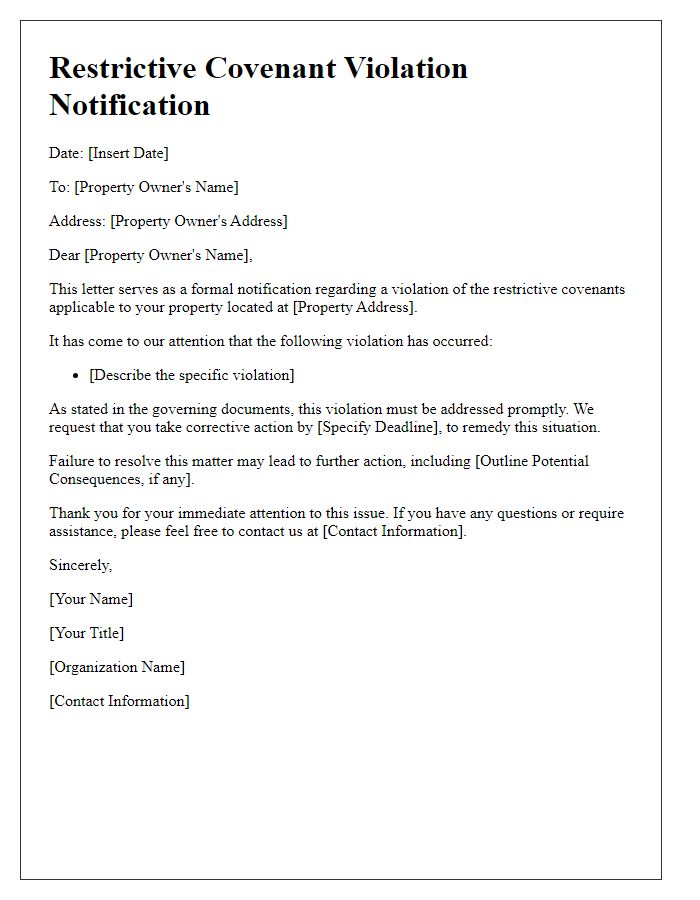
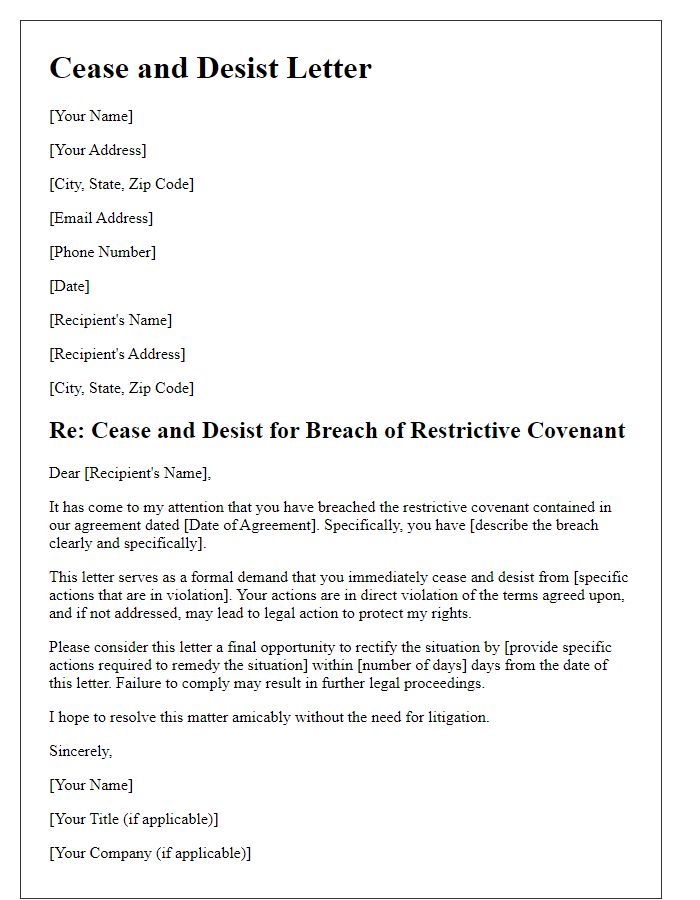
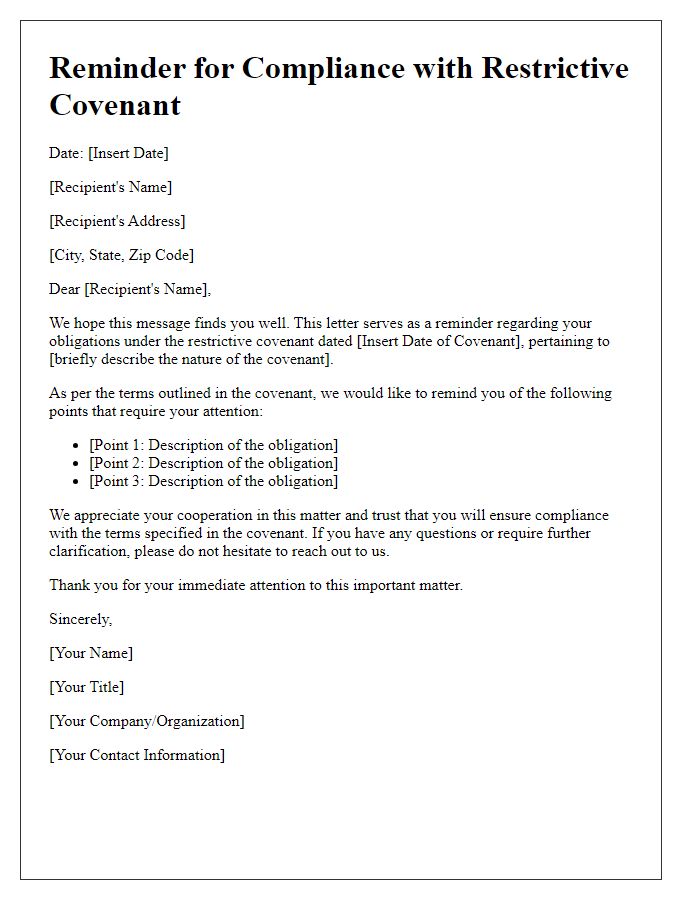
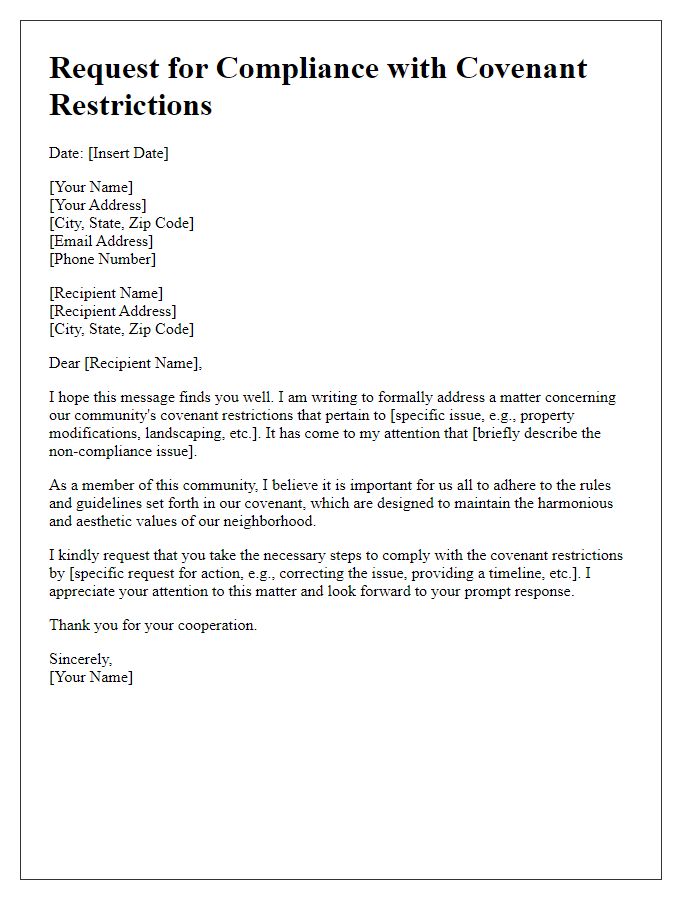
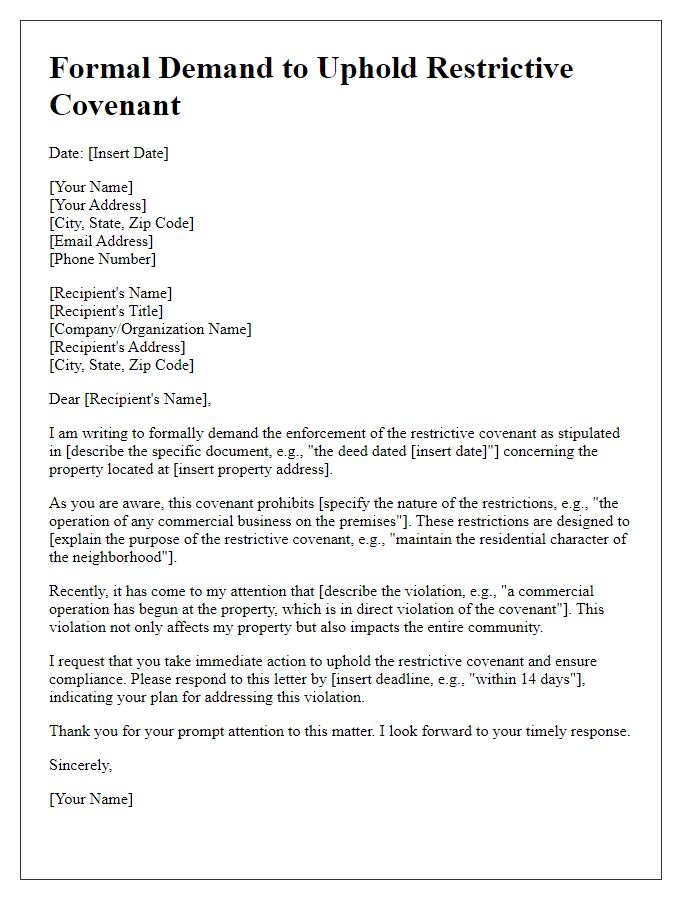
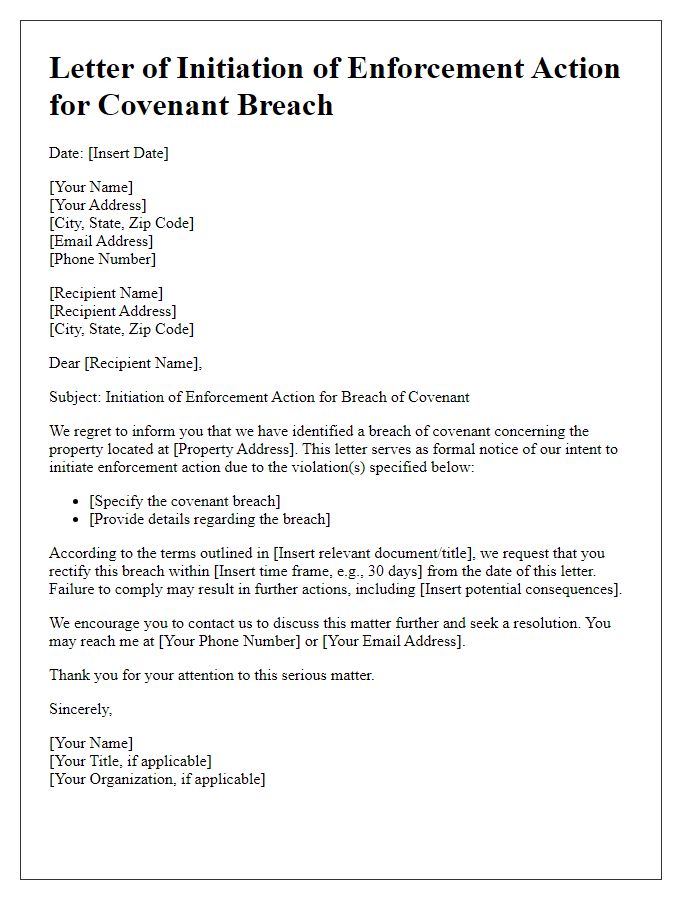
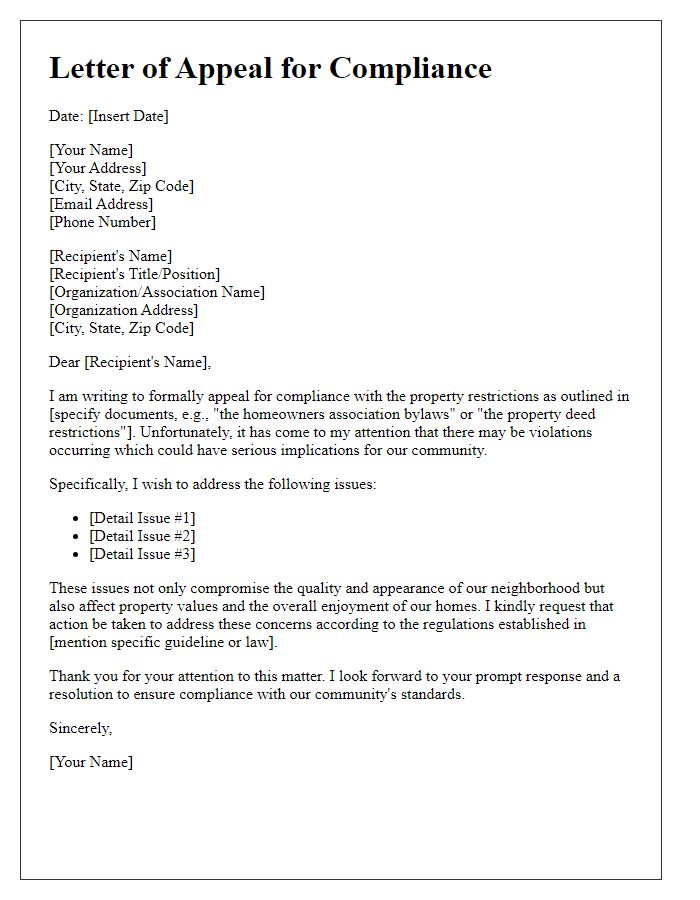
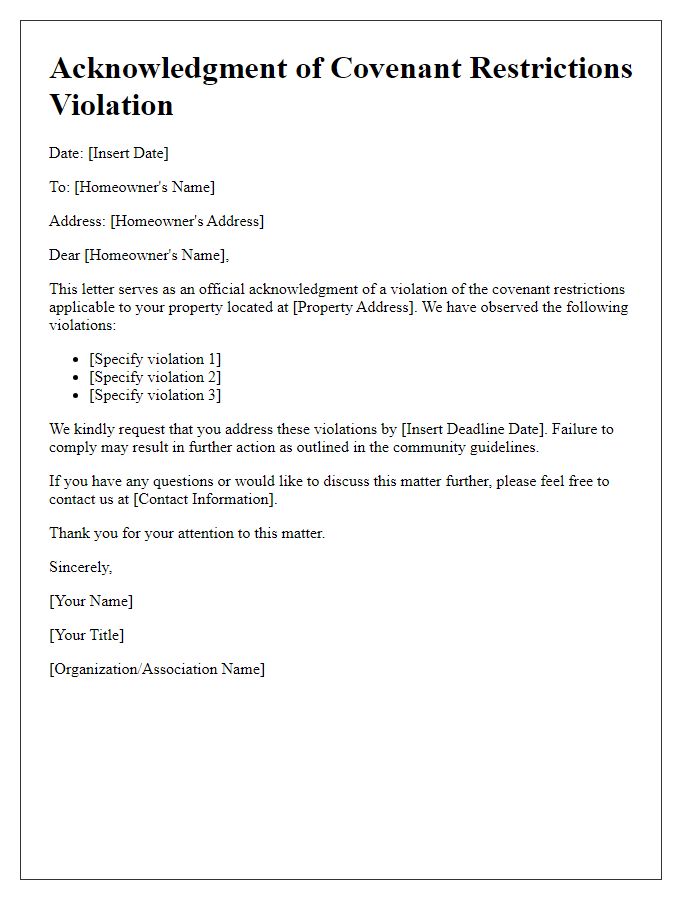
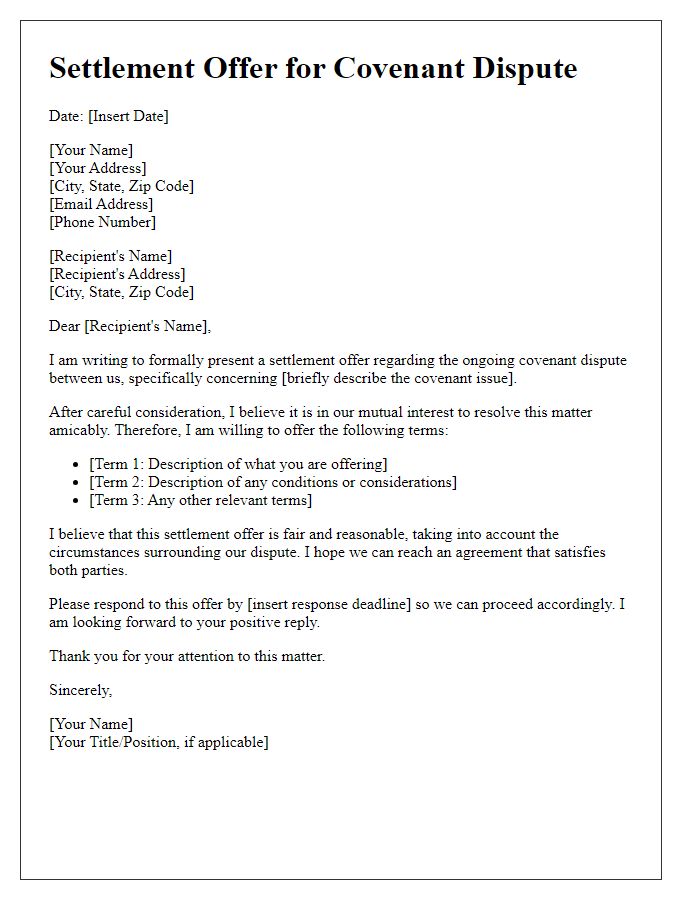
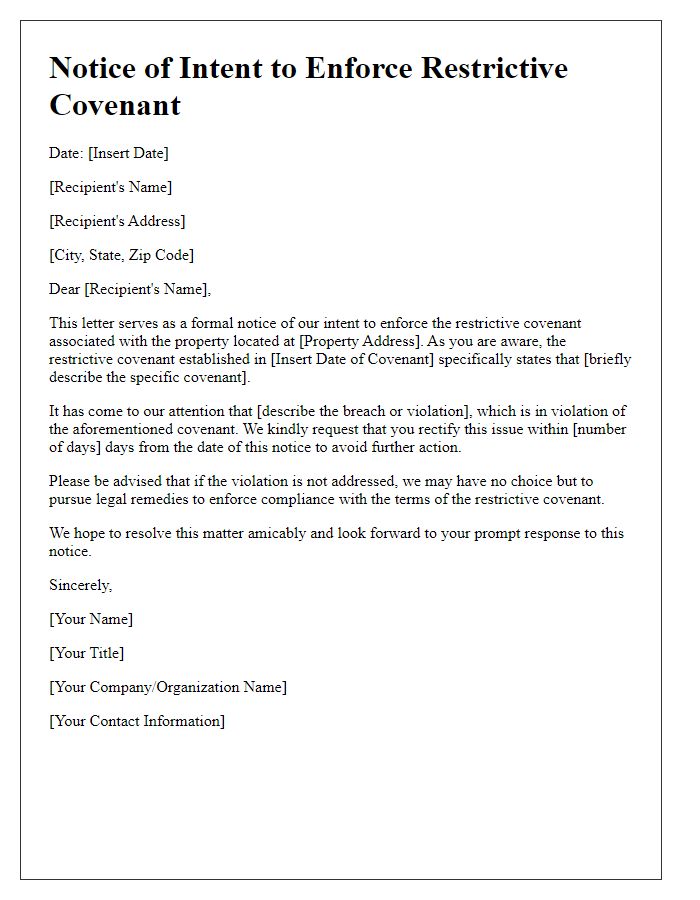

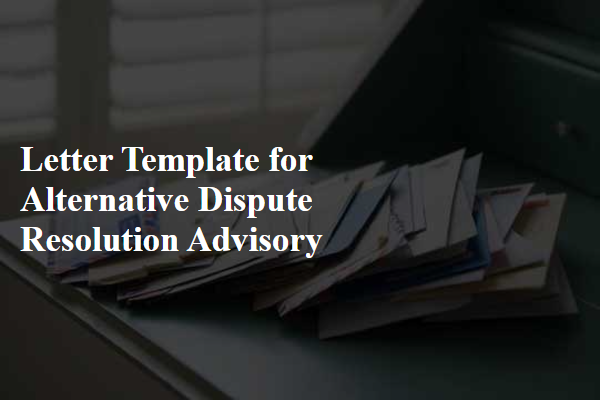
Comments